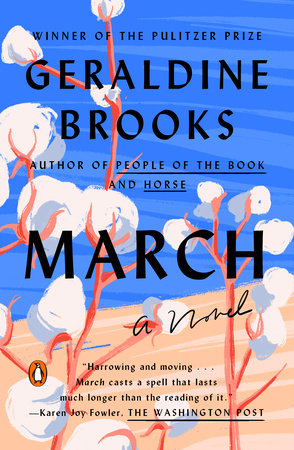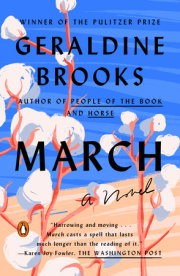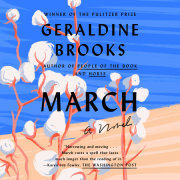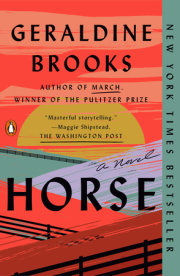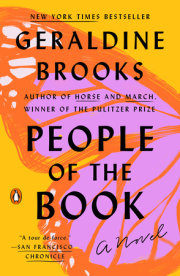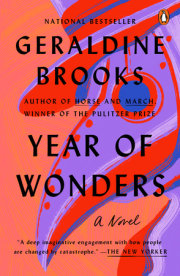chapter one
Virginia Is a Hard Road
October 21, 1861
This is what I write to her: The clouds tonight embossed the sky. A dipping sun gilded and brazed each raveling edge as if the firmament were threaded through with precious filaments. I pause there to mop my aching eye, which will not stop tearing. The line I have set down is, perhaps, on the florid side of fine, but no matter: she is a gentle critic. My hand, which I note is flecked with traces of dried phlegm, has the tremor of exhaustion. Forgive my unlovely script, for an army on the march provides no tranquil place for reflection and correspondence. (I hope my dear young author is finding time amid all her many good works to make some use of my little den, and that her friendly rats will not grudge a short absence from her accustomed aerie.) And yet to sit here under the shelter of a great tree as the men make their cook fires and banter together provides a measure of peace. I write on the lap desk that you and the girls so thoughtfully provided me, and though I spilled my store of ink you need not trouble to send more, as one of the men has shown me an ingenious receipt for a serviceable substitute made from the seasonís last blackberries. So am I able to send ìsweet wordsî to you!
Do you recall the marbled endpapers in the Spenser that I used to read to you on crisp fall evenings just such as this? If so, then you, my dearest one, can see the sky as I saw it here tonight, for the colors swirled across the heavens in just such a happy profusion.
And the blood that perfused the silted eddies of the boot-stirred river also formed a design that is not unlike those fine endpapers. Oróbetterólike that spill of carmine ink when the impatient hand of our little artist overturned the well upon our floorboards. But these lines, of course, I do not set down. I promised her that I would write something every day, and I find myself turning to this obligation when my mind is most troubled. For it is as if she were here with me for a moment, her calming hand resting lightly upon my shoulder. Yet I am thankful that she is not here, to see what I must see, to know what I am come to know. And with this thought I exculpate my censorship: I never promised I would write the truth.
I compose a few rote words of spousal longing, and follow these with some professions of fatherly tenderness: All and each of you I have in my mind, in parlor, study, chambers, lawn; with book or with pen, or hand in hand with sister dear, or holding talk the while of father, a long way off, and wondering where he is and how he does. Know that I can never leave you quite; for while my body is far away my mind is near and my best comfort is in your affection...Then I plead the press of my duties, closing with a promise soon to send more news.
My duties, to be sure, are pressing enough. There are needful men all around me. But I do not immediately close my lap desk. I let it lie across my knees and continue to watch the clouds, their knopped masses blackened now in the almost lightless sky. No wonder simple men have always had their gods dwell in the high places. For as soon as a man lets his eye drop from the heavens to the horizon, he risks setting it on some scene of desolation.
Downriver, men of the burial party wade chest deep to retrieve bodies snagged on fallen branches. Contrary to what I have written, there is no banter tonight, and the fires are few and ill tended, so that the stinging smoke troubles my still-weeping eye. There is a turkey vulture staring at me from a limb of sycamore. They have been with us all day, these massive birds. Just this morning, I had thought them stately, in the pearly predawn light, perched still as gargoyles, wings widespread, waiting for the rising sun. They did not move through all the long hours of our Potomac crossing, first to our muster on this island, which sits like a giant barge in the midstream, splicing the wide water into rushing narrows. They watched, motionless still, as we crossed to the farther shore and made our silent ascent up the slippery cow path on the face of the bluff. Later, I noticed them again. They had taken wing at last, inscribing high, graceful arcs over the field. From up there, at least, our predicament must have been plain: the enemy in control of the knoll before us, laying down a withering fire, while through the woods to our left more troops moved in stealthy file to flank us. As chaplain, I had no orders, and so placed myself where I believed I could do most good. I was in the rear, praying with the wounded, when the cry went up: Great God, they are upon us!
I called for bearers to carry off the wounded men. One private, running, called to me that any who tried it would be shot full of more bullets than he had fingers and toes. Silas Stone, but lightly injured then, was stumbling on a twisted knee, so I gave him my arm and together we plunged into the woods, joining the chaos of the rout. We were trying to recover the top of the cow pathóthe only plain way down to the riverówhen we came upon another turkey vulture, close enough to touch it. It was perched on the chest of a fallen man and turned its head sharply at our intrusion. A length of organ, glossy and brown, dangled from its beak. Stone raised his musket, but he was already so spent that his hands shook violently. I had to remind him that if we didnít find the river and get across it, we, too, would be vulture food.
We thrashed our way out of the thicket atop a promontory many rods short of the cow path. From there, we could see a mass of our men, pushed by advancing fire to the very brow of the bluff. They hesitated there, and then, of a sudden, seemed to move as one, like a herd of beasts stampeded. Men rolled, leaped, stumbled over the edge. The drop is steep: some ninety feet of staggered scarps plunging to the river. There were screams as men, bereft of reason, flung themselves upon the heads and bayonets of their fellows below. I saw the heavy boot of one stout soldier land with sickening force onto the skull of a slight youth, mashing the bone against rock. There was no point now in trying to reach the path, since any footholds it might once have afforded were worn slick by the frenzied descent. I crawled to the edge of the promontory and dangled from my hands before dropping hard onto a narrow ledge, all covered with black walnuts. These sent me skidding. Silas Stone rolled and fell after me. It wasnít until we reached the water-laved bank that he told me he could not swim.
The enemy was firing from the cliff top by then. Some few of our men commenced tying white rags to sticks and climbing back up to surrender. Most flung themselves into the river; many, in their panic, forgetting to shed their cartridge boxes and other gear, the weight of which quickly dragged them under. The only boats were the two mud scows that had ferried us across. For these, men flung themselves until they were clinging as a cluster of bees dangling from a hive, and slipping off in clumps, four or five together. Those that held on were plain targets and did not last long.
I dragged off my boots and made Stone do the same, and bade him hurl his musket far out, to the deepest channel, so as to put it from reach of our enemies. Then we plunged into the chill water and struck out toward the island. I thought we could wade most of the way, for crossing at dawn, the poles had seemed to go down no significant depth. But I had not accounted for the strength of the current, nor the cold. ìI will get you across,î I had promised him, and I might have done, if the bullet hadnít found him, and if he hadnít thrashed so, and if his coat, where I clutched it, hadnít been shoddily woven. I could hear the rip of thread from thread, even over the tumbling water and the yelling. His right hand was on my throat, his fingersócallused tradesmanís fingersódepressing the soft, small bones around my windpipe. His left hand clutched for my head. I ducked, trying vainly to refuse him a grip, knowing he would push me under in his panic. He managed to snatch a handful of my hair, his thumb, as he did so, jabbing into my left eye. I went under, and the mass of him pushed me down, deep. I jerked my head back, felt a burn in my scalp as a handful of hair ripped free, and my knee came up, hard, into something that gave like marrow. His hand slid from my throat, the jagged nail of his middle finger tearing away a piece of my skin.
We broke the surface, spewing red-brown water. I still had a grip on his tearing jacket, and if he had stopped his thrashing, even then, I might have seized a stouter handful of cloth. But the current was too fast there, and it tugged apart the last few straining threads. His eyes changed when he realized. The panic just seemed to drain away, so that his last look was a blank, unfocused thingóthe kind of stare a newborn baby gives you. He stopped yelling. His final sound was more of a long sigh, only it came out as a gargle because his throat was filling with water. The current bore him away from me feet first. He was prone on the surface for a moment, his arms stretched out to me. I swam hard, but just as I came within reach a wave, turning back upon a sunken rock, caught his legs and pushed the lower half of his body under, so that it seemed he stood upright in the river for a moment. The current spun him round, a full turn, his arms thrown upward with the abandon of a Gypsy dancer. The firing, high on the bluff, had loosed showers of foliage, so that he swirled in concert with the sunshine-colored leaves. He was face to face with me again when the water sucked him under. A ribbon of scarlet unfurled to mark his going, widening out like a sash as the current carried him, down and away. When I dragged myself ashore, I still had the torn fragment of wet wool clutched in my fist.
I have it now: a rough circle of blue cloth, a scant six inches across. Perhaps the sum total of the mortal remains of Silas Stone, wood turner and scholar, twenty years old, who grew up by the Blackstone River and yet never learned to swim. I resolved to send it to his mother. He was her only son.
I wonder where he lies. Wedged under a rock, with a thousand small mouths already sucking on his spongy flesh. Or floating still, on and down, on and down, to wider, calmer reaches of the river. I see them gathering: the drowned, the shot. Their hands float out to touch each other, fingertip to fingertip. In a day, two days, they will glide on, a funeral flotilla, past the unfinished white dome rising out of its scaffolds on a muddy hill in Washington. Will the citizens recognize them, the brave fallen, and uncover in a gesture of respect? Or will they turn away, disgusted by the bloated mass of human rot?
I should go now and find out where upon this island they are tending to the wounded. Naturally, the surgeon has not seen fit to send me word. The surgeon is a Calvinist, and a grim man, impatient with unlabeled brands of inchoate faith. In his view, a man should be a master of his craft, so that a smith should know his forge, a farmer his plow, and a chaplain his creed. He has made plain his disregard for me and my ministry. The first time I preached to the company, he observed that in his view a sermon that did not dwell on damnation was scant service to men daily facing death, and that if he wanted to hear a love poem he would apply to his wife.
I dragged a hand through my hair, which has dried out in tangled mats, like discarded corn silks at a husking. Even to raise my arm for that slight effort is a misery. Every muscle aches. My aunt was right, perhaps, in her bitter denunciation of my coming here: the cusp of a manís fortieth year is no season for such an enterprise as this. And yet what manner of man would I be, who has had so much to say in the contest of words, if now I shirked this contest of blood? So I will stand here with those who stand in arms, as long as my legs can support me. But, as a private from Millbury observed to me today, ìVirginia is a hard road, reckon.î
I stowed the lap desk in my rucksack. We had left the main part of our gear here on the island, but my blanket was sodden from the use of it to dry myself and to blot my soaking clothes. Still, there is some warmth in wool, wet or no. I carried it to a youth who lay, curled and keening, on the riverbank. The boy was dripping wet and shivering. I expected he would be on fire with fever by morning. ìWill you not come up the bank with me to some drier ground?î I asked. He made no reply, so I tucked the blanket around him where he lay. We will both sleep cold tonight. And yet not, I think, as cold as Silas Stone.
I made my way a few rods through the mud and then, where the bank dipped a little, scrambled with some difficulty into a mown field. In the flicker of firelight I discerned a small band of walking wounded sitting listless in the hollows of a haystack where they would shiver out the night. I inquired from them where the hospital tents had been established. ìThere ainít no tents: theyíre using some old secesh house,î said a private, nursing a bandaged arm. ìStrange place it is, with big white statues all nekked, and rooms filled up with old books. Thereís an old secesh lives there, cracked as a clay pot dropped on rock, seemingly, with just one slave doing for him. Sheís helping our surgeon, if youíd credit it. She probed out my wound for me and bound it up fine, like you see,î he said, proudly raising his sling, then wincing as he did so. ìShe tolí me they was more than a dozen slaves on the place before, and she the only one ainít ran off.î
I donít think the private knew his left from right, for his directions to the house were less than coherent, and his friend, whose neck was bandaged and who couldnít speak, kept waving his hands in objection at every turn the other man described. So I blundered on in the dark, finding myself at the riverbank again, uncertain whether the farther shore was Maryland or Virginia. I turned back and found a line of snake-rail fence that led past the ruins of what must have once been a gristmill. I continued following the fence line until it turned in at a gate. Beyond stretched a drive lined with dogwoods, and a gravel of river stone that was hard on my bootless feet.
And then I knew I was on the right path, for I smelled it. If only field hospitals did not always have the selfsame reek as latrine trenches. But so it is when metal lays open the bowels of living men and the wastes of digestion spill about. And there is, too, the lesser stink, of fresh-butchered meat, which to me is almost equally rank. I stopped, and turned aside into the bushes, and heaved up bitter fluid. Something about my state just then, bent double and weak, brought to my mind the recollection of my father, caning me, for refusing my share of salt pork. He believed a meatless diet such as mine made me listless at my chores. But what I shirked were the tasks themselves, foul and cruel. No soul should be asked to toil all day with the yellow oxen yoked up, unwilling, their hide worn raw by the harness, their big blank eyes empty of hope. It drains the spirit, to trudge sunup till sundown at the arse-end of beasts, sinking into piles of their steaming ordure. And the pigs! How could anyone eat pork who has heard the screams at slaughter when the black blood spurts?
Perhaps it was the darkness, or the different season. Perhaps my biliousness and grief and exhaustion. Perhaps simply that twenty years is a very long time for an active mind to retain any memory, much less one with dark and troubled edges, begging to be forgot. Whatever the case, I was halfway up the wide stone steps before I recognized the house. I had been there before.
Copyright © 2006 by Geraldine Brooks. All rights reserved. No part of this excerpt may be reproduced or reprinted without permission in writing from the publisher.

